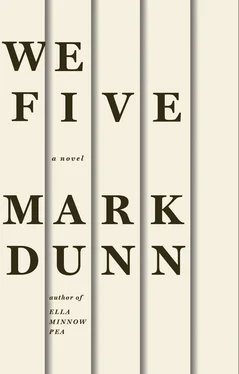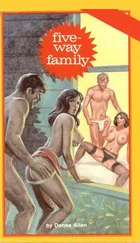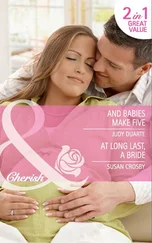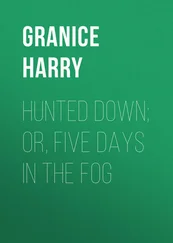“I haven’t any other plans,” said Ruth. “And I’d like to hear if there are other things you enjoy writing besides advertising copy.”
“Only if you tell me what kind of writing interests you. ”
“Yes, of course,” said Ruth shyly.
The photography at the windmill now having been completed, Holborne was in the process of gathering up his equipment and returning it to one of the two rented carriages that transported the dozen from one end of the long park to the other and everywhere in between. It was up to Harrison, as chief wrangler, to round up all the other members of the photography party, but first someone had to round up Mr. Harrison, who could not at that moment be located.
“What do you mean you don’t know where he is?” sputtered Katz to Castle.
Castle responded with equal irritation: “Just what I said.”
“Check the beach. You’ll probably find him splashing around like a two-year-old. Then remind me why my father hasn’t fired him yet.”
“Because he’s your cousin,” shouted Castle over his shoulder as he loped off.
Castle didn’t find Harrison on the beach. But, playing a hunch, he walked the four blocks up the Great Highway which overlooked the ocean, and confirmed his suspicion that his agency colleague had ambled up to the Sutro Baths.
And quickly learned that Harrison hadn’t ambled up there alone.
Pat and Molly — Molly still dressed in her stylish mustard-colored lawn dress from the windmill session — were standing on the Sutro Heights promenade watching an ambulance pull up in front of the street entrance to the baths. From the knot of onlookers also milling about, they learned the reason for the ambulance’s sudden appearance: one of the tobogganing bathers inside hadn’t cleared away quickly enough from the spot where the chute deposited its wet merrymakers into the pool, and he was knocked in the head beneath the surface of the water. The woman next to Molly, cloaked in a dripping wrapper which covered her bathing costume, surmised that the young man was probably dead. Her male companion disagreed. He argued that the poor bather had more than likely merely been struck unconscious, and once all the water was pumped from his lungs he “would be back to his old self in no time.”
Castle, who had sidled up next to his fugitive ad-man and the fashion model with whom he was playing hooky, said, by way of announcing his presence, “No time to find out how this little drama turns out, children. Your carriage awaits.”
Maggie sat in one of the two horse-drawn carriages, wondering when Jeremy Castle would return. In the other carriage, Jane conferred with Miss Colthurst and Miss Dowell over how the remainder of the day would proceed.
Carrie climbed in next to Maggie. “Do you see that woman over there on the bridge?”
“No,” replied Maggie. “All I see is those buffalo.”
Carrie turned Maggie’s head with a light application of palm to chin. “Over there . See her now?”
Maggie nodded. “What about her?”
“She was watching our photography session. We started talking to one another. She thinks she knows you.”
Maggie squinted in the bright sunshine. “The woman’s too far away for me to know whether I know her or not. Why doesn’t she just come over here?”
Carrie shook her head. “She isn’t dressed very well. I think she’s in service. You know that maids can be timid.”
“Are you suggesting I walk over to the bridge and talk to her ?”
“Only if you’re interested. There’s certainly time for you to at least say hello.”
Maggie sighed. “Of course, now you have piqued my curiosity.”
Maggie drew herself up and out of her cushioned seat, steadying herself with a hand upon the side of the open-topped landau, which generally took visitors through the park on day excursions but was now being put to a different form of commercial use. The woman, seeing that Maggie was now traversing the open field which separated the windmill from one of the little ponds where the park’s anachronistic buffalo herd came to drink, cut the distance short by meeting her halfway.
Even before the two came together, Maggie could see that the woman was someone she indeed did know. It was Mary Grace, the live-in housemaid who had worked for the Bartons when Maggie was a girl and then had to be let go when Mr. Barton could no longer afford her.
The two embraced like old friends. “I thought that was you!” exclaimed Mary Grace, holding Maggie apart from her with straight arms so as to get a better look at her. “Come up in the world, have you — posing all pretty and proper for that man’s camera.”
Maggie smiled warmly. “I work for Pemberton, Day. They’re putting advertisements in all the papers to promote the new summer fashions.”
“You always was a beautiful little girl, and now I see that you’ve blossomed into a fine and lovely young lady.” Mary Grace reached out and gingerly touched Maggie’s cheek. “And hardly any trace of the pox at all.”
“Oh, the magic of modern cosmetics! Although it helps that the pock marks don’t go too deep.”
“I thought we was going to lose you too, just like your sister Octavia. And after your poor sister Eleanor died of consumption. Some families get all the hard luck, it seems.”
“The deaths of two of their three daughters wasn’t something my father and mother bore very easily,” Maggie said with a sad nod of concurrence. “I know that it contributed to my father’s downward slide into dissolution, and turned my mother into such a terrible hypochondriac. I wish there were somewhere we could sit.” Maggie looked around for a convenient bench, but the only one she could spot was presently occupied by two young women sitting back to back like bookends while having their double-caricature sketched by one of the park’s roving lightning artists. “I’d so love to catch up with you. Mama’s getting remarried. Can you believe it? To a dentist. I’m not very fond of him but my opinion doesn’t seem to count for much. I know, I know! Come sit with me in the carriage. I’ll introduce you to my friend Carrie. She and her mother have a maid who reminds me a little of you — but only a little. She’s colored.”
Maggie introduced her family’s former maid to Carrie.
Carrie offered Mary Grace a boiled egg. Carrie had, only moments before, successfully sniffed out the three baskets of lunchtime provisions gathered for the photography party. “It’s an absolute feast!” she marveled, flipping back the hinged top to one of the wicker baskets. Mary Grace whistled her own amazement in the presence of such an excess of culinary riches. Carrie excitedly itemized the contents, as if her two companions hadn’t eyes of their own: “Eggs, crab salad — what are these — ham sandwiches — the devilish kind, it appears — and one — two — three — four different kinds of fruit.” Carrie plucked up a banana. “I just adore bananas. I’m a regular monkey. Oh, is this beer? Bottles of beer, oh my goodness!”
“Are you quite finished, Carrie?” asked Maggie through a scowl. “Because I’d like to talk to Mary Grace. I haven’t seen her in years.”
“Don’t let me stop you,” said Carrie, unpeeling a perfectly ripe banana.
As Mary Grace was undressing her hard-boiled egg and letting the pieces of shell drop daintily into the napkin Maggie had spread upon her lap, she said, “Miss Maggie, you spoke of you three girls. But you made no mention of your brother. Why is that?”
“Because I’m not sure there ever was a brother. Do you know something I don’t know?”
“Your mother never said nothing about him?”
“She mentioned a son when she was talking out of her head one night with a high fever. I asked her about it later and she denied having said any such thing. Either she was imagining a boy she never had, or — I sometimes thought — perhaps there was a child who died at birth, and to lessen the heartbreak my mother and father agreed that each of them would simply pretend he’d never been.”
Читать дальше












